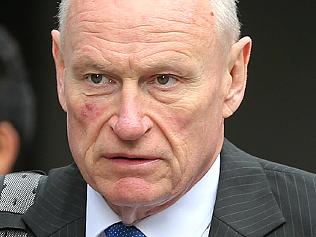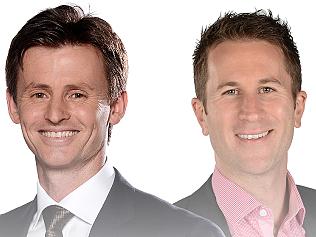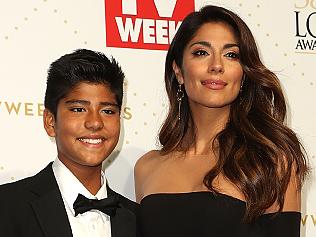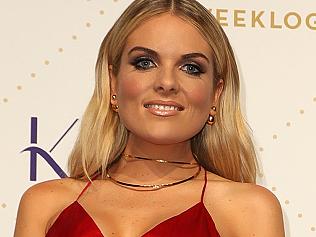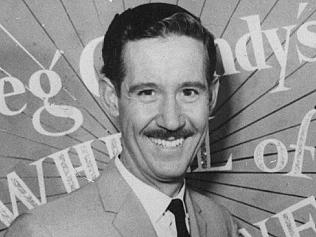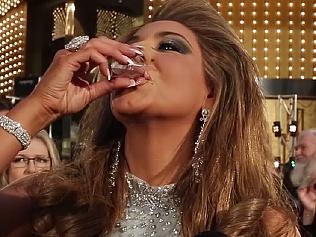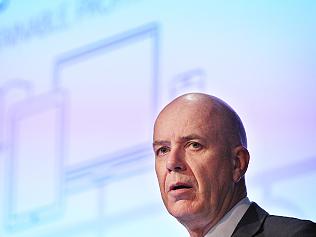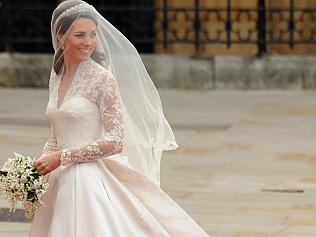Code of Conduct
Code of Conduct
The policy of our publications across all platforms
This policy applies to News Limited and its editorial employees in both print and digital media platforms. It is an update of the News Limited Professional Conduct Policy which applies to editorial employees of News NSW; News Victoria, News Queensland, Davies Bros Limited, Advertiser Newspapers Limited and the regional and suburban newspaper and operations around Australia.
News Limited group publications aim for the highest editorial and ethical standards.
Editorial employees and contributors should be open-minded, be fair and respect the truth.
To this end, all staff need to be familiar with the policy detailed in the following pages, to follow the rules they contain, and to apply their underlying principles.
1. Accuracy
1.1 Facts must be reported impartially, accurately and with integrity.
1.2 Publications should take reasonable steps to ensure reports are accurate, fair and balanced.
1.3 Clear distinction must be made between fact, conjecture, comment and opinion.
1.4 Try always to tell all sides of the story in any kind of dispute. Every effort must be made to contact all relevant parties.
1.5 Do not knowingly withhold or suppress essential facts.
1.6 Journalists should not rely on only one source. Be careful not to recycle an error from one reference source to another.
1.7 Direct quotations should not be altered except to delete offensive language, protect against defamation, or to make minor changes for clarity.
1.8 Headlines and captions must reflect the tone and content of the article
1.9 Reports of new drugs or medical treatments must be considered with great caution. It is easy to raise false hopes or alarm among readers.
1.10 Information sourced from social media must be verified and checked for accuracy before publication on any platform.
1.11 Editors must be informed of photographs sourced from social media sites.
1.12 Images prepared for publication must meet the guidelines of the Photographic Enhancement and Manipulation policy, outlined below in Section 18.
2. Mistakes
2.1 Serious factual errors should be corrected at the first opportunity, subject to legal advice where appropriate, and corrections should be given due prominence. Individuals or organisations that have been criticised in News group publications should be given a fair opportunity to respond.
2.2 News Limited supports self regulation in the newspaper industry and participates in the activities of the Australian Press Council. Editors must publish prominently and promptly all Council adjudications on complaints by the public in respect of their newspapers.
2.3 All mastheads must publish prominent and permanent details in print and online that advise how to contact the publisher re concerns about content; how to contact the Council; how to access the standards of News Limited and of the Council. As well, all publications must publish a permanent column/section in print and online that deals with corrections and readers’ right of response.
3. Misrepresentation
3.1 Do not use false names when representing a News Limited publication.
3.2 Do not try to get information or photographs by deception.
4. Privacy
4.1 All individuals, including public figures, have a right to privacy. Journalists have no general right to report the private behaviour of public figures unless public interest issues arise. The right to privacy diminishes when the suitability of public figures to hold office or perform their duties is under scrutiny and such scrutiny is in the public interest.
4.2 Unless it is in the public interest to do so, do not identify the family or friends of people accused of, or convicted of, a crime.
4.3 The publication of sensitive personal information — such as taxation details, Family Court records and health and welfare matters — may be prohibited by legislation. Seek legal advice.
4.4 Private investigators will not be contracted to provide editorial services without the approval of the group editorial director.
4.5 Private investigators conducting work on behalf of the company will be required to comply with our editorial code of conduct and provide a written assurance that they will not engage in unlawful surveillance.
5. Covert activities
5.1 Journalists and photographers may at times have to operate to expose crime, significantly anti-social conduct, public deception or some other matter in the public interest. All such operations must be approved in advance by the divisional head and the group editorial director. This approval will be given only where good cause exists to suspect crime or deception has taken place, and after all other means of gathering the facts have been exhausted. The group editorial director must be satisfied that the importance of publishing the information sought outweighs any damage to trust and credibility which your newspaper might suffer by allowing employees to operate surreptitiously. Where appropriate, the nature and reasons for operating covertly should be disclosed to readers.
5.2 Rules surrounding permission to tape telephone conversations differ between states. Seek specific legal advice as pertains to your state before taping any conversations. Be aware that approval must be sought if recording is to be used as audio in any online capacity.
6. Confidential sources
6.1 The sources of information must be identified, wherever possible. When an informant insists on anonymity, verification of the information offered must be sought from other, preferably attributable, sources.
6.2 A promise of confidentiality to a source must, of course, be honoured. However, journalists must be aware of the possible consequences. For example, a judge may order the source to be identified. Defiance of this order could lead to conviction for contempt of court, with the consequence of being imprisoned or being sanctioned with a heavy fine.
7. Harassment
7.1 Do not harass or try to intimidate people when seeking information or photographs.
7.2 Do not photograph people on their property without their consent unless the public interest in doing so is clear.
7.3 If asked to leave private property, do so promptly.
7.4 Do not persist in telephoning, pursuing, questioning, door-stopping or obstructing access after you have been asked by an authorised person to stop.
8. Discrimination
8.1 Do not make pejorative reference to a person’s race, nationality, colour, religion, marital status, sex, sexual preferences, age, or physical or mental capacity. No details of a person’s race, nationality, colour, religion, marital status, sex, sexual preferences, age, or physical or mental incapacity should be included in a report unless they are relevant.
9. Grief and distress
9.1 Reporters and photographers must always behave with sensitivity and courtesy toward the public, and in particular towards those involved in tragic events. No one should be put under pressure to be photographed or interviewed. Initial approaches might best be made through friends or relatives. We should respect the wishes of the bereaved or grieving.
9.2 Do not go into non-public areas of hospitals, welfare institutions, funeral parlours, churches, etc, without identifying yourself or without permission of the people affected or their intermediaries, subject to the conditions of covert activity outlined above.
9.3 Maintain sensitivity when recalling tragedy or crime.
10. Children
10.1 Extreme care should be taken that children are not prompted in interviews, or offered inducements to cooperate.
10.2 Do not identify children in crime and court reports without state specific legal advice.
10.3 Do not approach children in schools without the permission of a school authority.
11. Suicide
11.1 Do not reveal graphic details of a suspected suicide. Avoid making judgements about the method of death which suggest suicide is an acceptable means of resolving problems, particularly among young people.
11.2 Do not report details of method and location of a suicide unless the public interest in doing so clearly outweighs the risk, if any, of causing further suicides.
11.3 Do not sensationalise, glamorise or trivialise suicides.
11.4 Adopt special sensitivity and moderation in gathering and reporting news to mitigate harm or hurt to all of those affected by suicide or attempted suicide, including the person themselves and their family.
11.5 Where possible, include in such reports the contact number of support groups where people with problems may seek help.
12. Illegal drugs
12.1 Do not report recipes for drug manufacture details of distribution or descriptions of the use of other harmful substances unless justified by public safety considerations or at the request of authorities.
13. Weapons and threats
13.1 Do not report threats to use bombs or other weapons or threats of extortion unless public safety justifies it, or when the authorities request you to do so, or when it is necessary to explain public disruption caused by the authorities’ reaction to such a threat.
13.2 Do not report details of the manufacture or methods of using explosives, ammunition, firearms, fireworks, crossbows, booby traps or any potentially lethal device.
14. Payment for information
14.1 Payment must not be made for interviews or information. In the event that a demand for payment or other form of reward or compensation is made, agreement must not be given without the group editorial director’s approval.
14.2 The same principle applies to payments to criminals and their families and associates, witnesses in criminal proceedings and their families and associates.
15. Personal gain
15.1 Employees must not request or accept any money, travel, goods, discounts, entertainment or inducements of any kind outside the normal scope of business hospitality.
15.2 Bribes are to be rejected promptly and the managing editor and divisional head informed immediately.
15.3 Only the managing editor, editorial director or a nominee is authorised to accept offers of free or discounted travel, accommodation etc on behalf of a publication.
15.4 The managing editor has the absolute right to decide whether to accept an offer, who should be assigned and whether a report is published as a consequence. These conditions must be made clear to whoever made the offer.
15.5 Gifts of cash (any sum) are never acceptable.
15.6 Employees must never solicit or request any gift or benefit for themselves or anyone else in connection with their employment.
15.7 Employees must never solicit discount travel or accommodation for themselves; nor misrepresent their role within News in order to secure any form of travel discount or accommodation. Any travel provided free of charge by non-News Ltd companies must be approved prior to any commitment being entered into. All international travel must be approved in advance by the group editorial director.
15.8 Employees must never use their employment with News Limited as a means of gaining any form of entitlement or benefit from a commercial organization.
15.9 Employees must not accept personal gifts above a nominal value of $100. If a gift has more than a nominal value, it may only be accepted following approval of the relevant departmental manager or editorial executive.
16. Financial reporting
16.1 It is illegal for employees to make personal gain from financial information received in advance of general publication. It is illegal to pass this information to others.
16.2 Journalists must not write about shares, securities or companies in which they, their family or friends, have a financial interest without disclosing that interest to the editor.
16.3 A declaration of interest must be made if journalists have traded or intend to trade, directly or indirectly, in shares or securities about which they have written recently or intend to write soon.
16.4 Journalists should not write about prospectuses prior to their lodgment without confirming that regulations of the Australian Securities Commission are not breached.
17. Plagiarism
Plagiarism is theft.
18. Photographic enhancement and manipulation policy
18.1 Images prepared for publication should meet the following guidelines. It is the responsibility of staff to produce true and accurate representations for publication. The credibility of our photographs is all important to the integrity of our newspapers and online sites. Enhancement of photographs is acceptable. However, this should be limited to simple procedures which improve reproduction quality, ie; auto enhancement.
18.2Colour alteration, over sharpening and image manipulation is prohibited.
18.3Subject to Clause 1, wire services pictures and images bought from non-News Group sources must not be altered except where an editor or the most senior editorial executive on duty deems it necessary to delete matter which might cause offence. Picture sources should be credited and any alteration explained in the caption.
18.4 Freelance, occasional and on-the-spot contributors must give an undertaking in writing that their pictures have not been altered. Except in special circumstances and on approval of the editor or the most senior editorial executive on duty, the source should be credited in the caption.
18.5 Any image that has had the subject altered or added to should be clearly acknowledged in the caption as “ Digitally Altered Image ”.
18.6 Images that News Limited companies sell for publication or private sales must be offered without electronic manipulation subject to clause 1.
18.7 Pictures by staff photographers being published in News Limited publications may be altered to achieve special effects or for artistic purpose, but only with the approval of the editor or the most senior editorial executive on duty. Pictures so treated must carry a warning in the captions explaining that the image has been altered when they are published or transmitted interstate or overseas.
18.8 Any special image that requires archiving and has been altered must be clearly marked to this effect before being archived and an original filed.
19. Interviews/Requests for information or documentation in third party litigation
19.1 In general, News Limited expects employees and contributors to co-operate with the authorities in investigations. However, requests by police or other authorities for work-related interviews must be referred to the managing editor and divisional head.
19.2 No employee of News Limited should speak in that capacity to another media organisation or at a public event without permission of the state editorial director or managing editor. (See the External Media policy guidelines below).
20. Advertising
20.1 Editorial material created as a condition of placing an advertisement (i.e. for favourable consideration) must carry a clear label at the top of the page, or directly above an isolated item: “advertisement”, “advertorial” or “advertising feature”.
20.2 Where possible, news stories which inadvertently relate to an advertisement, or advertiser, should not be carried on the same page.
21. Conflict of interest
21.1 A conflict of interest arises when personal interests or divided loyalties interfere with the ability to make sound, objective business decisions on behalf of the company . Staff may join and participate in any lawful political or community organisations or activities but must avoid any potential conflict of interest with their employment, and notify the editor if such a potential exists;
21.2 The editor must be made aware as soon as possible if a reporter is assigned to a story that presents a possible or real conflict of interest. Employees have an obligation to report potential personal conflicts of interest to the editor and managing editor.
21.3 Any employee wishing to perform paid or unpaid work for a rival party publication, radio or television outlet must receive written approval from the editor before doing so.
21.4 Contributors must comply with provisions relating to conflicts and must declare any real or potential conflict of interest arising from material submitted for publication and supervisors must do their utmost to ensure no conflict exists. Any association which may have a bearing, or appear to have a bearing, on a contributor’s view, must be identified with the published material.
21.5 Failure to notify the editor and managing editor of any real or potential conflict of interest may result in dismissal.
22. Standards of Business Conduct
22.1 News Corporation has in place Standards of Business Conduct with which employees must comply. These are available on the Intranet.
23. Confidential Information
23.1 The company’s reputation is one of our most valuable assets. We are all responsible for protecting the confidentiality of company information and we cannot:
- Disclose that information to third parties without proper authorisation to do so;
- Use the information for personal gain; or
- Use the information in any manner that is inconsistent with the company’s interests.
- Confidential information may include information or data about the company’s planning, business strategy, projects, existing or potential customers, competitors or suppliers, financial results or operations, major contracts, commencement of major litigation, confidential personnel information and anything else which is not in the public domain.
24. Other Obligations
24.1 Do not bring the reputation of the company, your colleagues or your masthead into disrepute.
24.2 Respect the confidences and sensitivities of your colleagues at all times.
24.3 Familiarise yourself with the company policies regarding employees such as bullying and harassment.
25.3 All employees are required to be neat and dressed appropriately for their particular job.
25.5 Employees must protect company assets from theft, carelessness, waste and misuse and respect the property rights of others.
26. Breaches of policy
26.1 Group publications must regularly publish advice to readers on how to lodge a complaint about the conduct of an editorial employee or the content of a story.
26.2 Responses to complaints by an authorised officer of the company should be timely, subject to any legal considerations.
26.3 Complaints involving alleged breaches of this policy will be investigated by the managing editor of the newspaper concerned, or by an executive of equivalent status. Proven breaches will be dealt with in accordance with the company’s disciplinary procedures.
News Limited
Editorial Code of Conduct Professional Conduct Policy July 2012
Most Viewed
- Milat actor allegedly threw Logies punch
- Eddie: I don’t know if I can take it any more
- Victoria braced for more rain, winds
- Triple shooting victim also wounded in 2009
- Noni’s scathing Logies speech
- The Tackle: likes and dislikes
- Shot clock ‘farce’: AFL to let fans decide
- It’s time to extend the school day from 9am to 6pm





